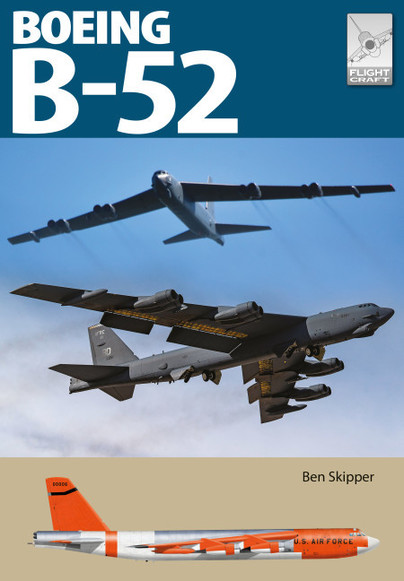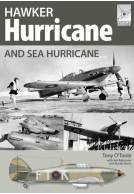Flight Craft 31: Boeing B-52 Stratofortress (ePub)
Imprint: Air World
Series: Flight Craft
File Size: 41.3 MB (.epub)
Illustrations: 50 colour illustrations, 50 mono illustrations
ISBN: 9781399080040
Published: 30th June 2024
| Other formats available | Price |
|---|---|
| Flight Craft 31: Boeing B-52 Stratofortress Paperback Add to Basket | £15.19 |
First flown in 1952, the Boeing B-52 Stratofortress became the ultimate expression of Cold War very heavy bomber design. The last of the famous ‘Fortress’ series of aircraft produced by the legendary Seattle-based company, the B-52 was created over a weekend in a hotel suite in Ohio, resulting in a design that gave America’s post-war Strategic Air Command, led by General Curtis Le May, an additional nuclear-capable edge.
The B-52 was almost as big as Convair’s B-36 Peacemaker, the largest serial-produced piston-powered aircraft ever built. The B-52 could carry a very similar bomb load, but flew it further, higher and faster. The turbojet-powered B-52 utilized techniques Boeing had learned from the Model 450 B-47 Stratojet and was designed to meet the Strategic Air Command’s ever-changing needs in the nuclear age.
Like its predecessors, Boeing’s B-52 proved to be a highly flexible aircraft, capable of carrying increasing payloads, meaning it has remained in service well beyond its expected lifespan. Over the decades the B-52 gradually become a strategic and tactical airborne platform capable of delivering evermore deadly attacks against targets in various environments, from jungle to arid mountains. The B-52 had become the universal tool for commanders on the ground and a symbol of American military power, capable of striking a target anywhere in the world – as evidenced by its deployment in, for example, the Vietnam War and the Gulf War. Such was its potency, that the USAF and Boeing had developed an aeroplane of such importance that it now seems impossible to discuss conventional air power without including the B-52.
This Flight Craft title offers the aviation enthusiast, historian and modeller an exciting selection of B-52-related resources through photographs, illustrations and excellent showcase examples to help build their own versions of this fearsome military aircraft.
“…a book well worth picking up if you are a fan of the type. It reads well and has a lot of photos of the real deal…”
ModelingMadness.com
Read the full review here
As featured in
JP4 - December 2024 Issue
Review as featured in
Historical Miniatures Gaming Society, November 2024
"This volume is nevertheless welcome as an addition to the many others already published on Boeing's evergreen bomber."
Aeroplane - December 2024
3 Stars
Review as featured in
Panorama Difesa, November 24
The book is well illustrated throughout, with plenty of pictures with loads of detail of the real thing, covering a long career, and equally a series of high quality photos of the 3 featured model builds. Bearing in mind the great story of the B-52 over so many years, I think Ben, along with publishers Pen & Sword, have done a first class job of fitting it all into the confines of the format for this FlightCraft series. For me, it makes a really good addition to this mini-series of the famous Boeing bombers (B-17, B-29 and now B-52). Fans of the BUFF, and modellers in particular, will like this I think.
Military Model Scene
Read the full review here
About Ben Skipper
BEN SKIPPER AMRAeS is a freelance feature writer with over 100 articles published on art, military and field sports subjects. He is an Associate Member of Royal Aeronautical Society and the Pen and Sword Club (military journalists and writers), a Freeman of the City of London and the Company of Communicators, a full member of the British Guild of Agricultural Journalists, the NUJ and the Society of Authors. Ben is an avid modeller and writer of twentieth-century military subjects. His interest in British armour was cemented by a visit to the King’s Royal Hussars in the early 1990s as an undergraduate in the Territorial Army. He then joined the RAF, clocking up air miles in a range of RAF transport aircraft including the VC10 and C-17.


























